Zu treuen Händen - to hold in trust
For the summer of 2022, we are welcoming the artists Orpheo Winter, Karø Goldt and Joshua Schwebel following our open call.
Our two-year cycle (2022-23) entitled “zu treuen Händen - to hold in trust” tackles the notion of trust in the framework and context inspired by the tower and our times. The 6-weeks long residencies will take place from May until the end of August 2022.
The Treuhandanstalt ("Trust agency"), was an agency established by the government of the German Democratic Republic to privatize East German enterprises, prior to German reunification. Initially created by the GDR council of ministers in 1990, the Treuhand oversaw the restructuring and sale of about 8,500 state-owned companies with over four million employees. At that time, it was the world's largest industrial enterprise, controlling everything from steel works to cinema studios.
The tower, as a relic of the GDR, has not been liquidated like enterprises. Yet, we are interested in actualizing and extending the term “Treuhand” to a larger notion of trust that encompasses economic, emotional, political as well as philosophical definitions. We would like to explore the relationship between reunification and socioeconomic developments, such as gentrification, that are presently taking placein the area. We are not looking merely for proposals that investigate the urban and historical landscape but also for some tackling emotional, collective, personal and political notions of trust and that engage with today’s landscape within and around the tower.
In the current light of the archival work on the Treuhand’s actions, and our archive-in-progress in the tower, we are looking for one proposal (within the 3 residencies) that investigates new insights of archival practices within this thematic cycle.
How do we earn and maintain trust? What is the role of trust in everyday life, work settings, friendships, business relations, the market, the Media and press etc.? Who do we trust and why? What are signs or indications of trust? How do we assess trustworthiness? How are trust, (un)certainty and the future related? Can we trust our guts? Can we make trust visible: through gestures, a smile, words, contracts? How do we capture trust?
ORPHEO WINTER
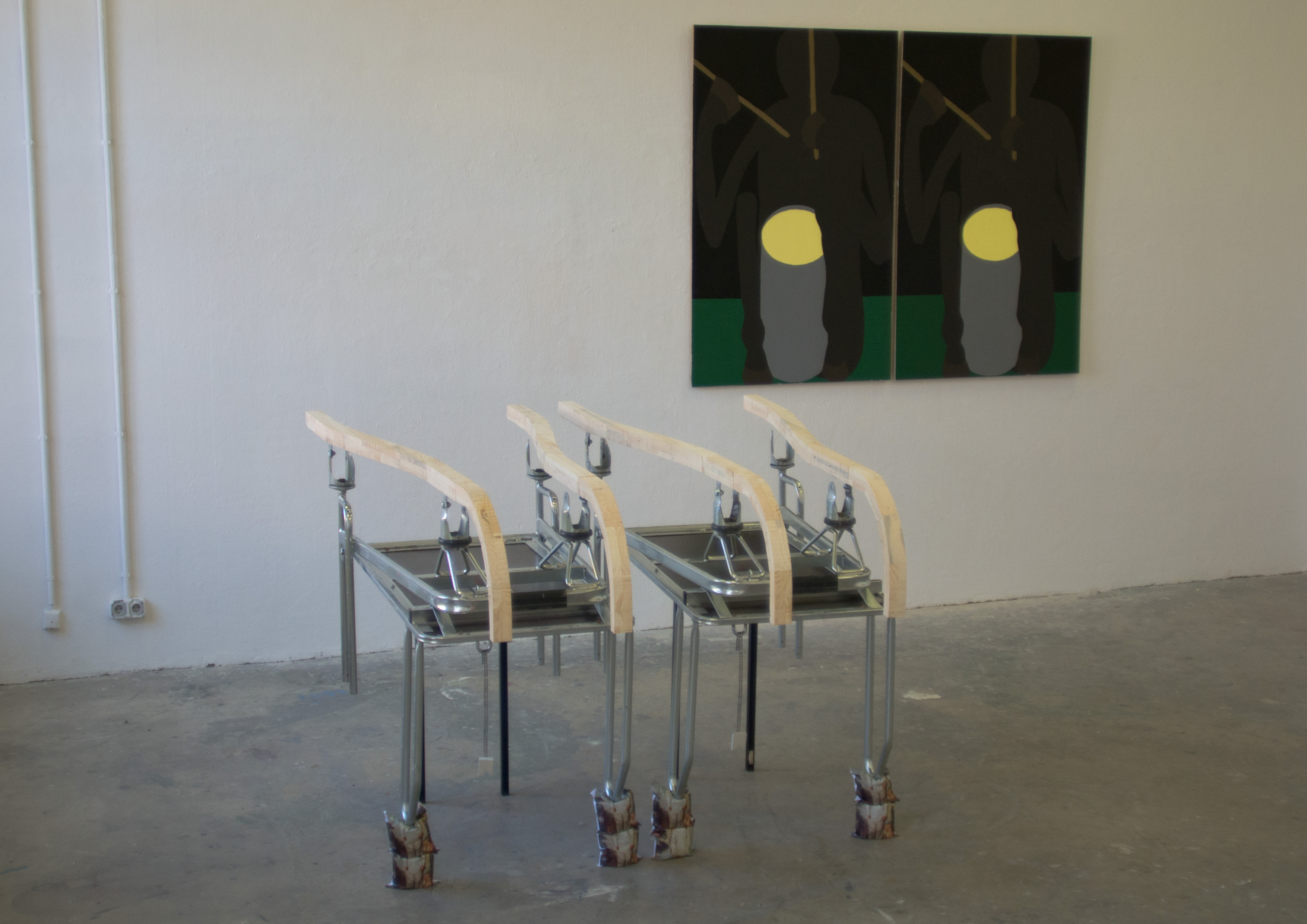 Intention, 2017
Intention, 2017Installation, im Vordergrund: Umgebaute Transportwagen, Holz, Digitalprints (Gilles, Antoine Watteau), Tischbeine, Lochband. An der Wand im Hintergrund: Acryl auf Leinwand auf MDF, (jeweils 100 x 160 cm) Maße variabel. © Orpheo Winter 2022
Nutzen wir das Internet, ist es nur schwer möglich dabei unsichtbar zu bleiben. Dass gängige Social-Media-Plattformen, oder Suchmaschinen ununterbrochen Daten sammeln und Geheimdienste jederzeit auf unsere Smartphones zugreifen können, sind Allgemeinplätze geworden. Dies ist nur eine besonders dramatische Auswahl von Beispielen dafür, wie weit das Misstrauen in unserer Gesellschaft verbreitet ist.
Aber in welchem Verhältnis stehen wir zu den Mitgliedern der Gesellschaft? Kann bzw. muss ich ihnen vertrauen? Was sind die Voraussetzungen dafür?
Im Rahmen der Residency möchte ich mich vor dem Hintergrund dieser Fragen dem Begriff der Transparenz nähern. Dabei ist es mein Ziel, einen offenen Überblick seiner Erscheinungsformen zusammenzustellen und diesen zu befragen, angefangen mit: Inwiefern ist Transparenz sichtbar?
Vielleicht insofern, als in Videospots sämtlicher Automarken, Transparenz das wundersame durchsichtig werden von Motorhauben bewirkt, unter denen die verborgene Performance nachhaltiger Technologien - wie durch eine Röntgenbrille gesehen - offenbart wird; Oder insofern als sogenannte „bildgebende Verfahren“ - wie MRTs oder computergestützte Visualisierungen unsichtbarer Prozesse (Verbreitung von Viren) - etwas zuvor unsichtbares, sichtbar machen.
Auch Aspekte moderner Architektur (Neue Nationalgalerie) können als Transparenz verstanden werden, als Offenlegung von Bauteilen. Selbst die Glaspavillons Dan Grahams sind Teil einer Ästhetik der Transparenz und damit Zitat eines „Wahrheitsversprechens“.
All diese Formen von Transparenz sollen Vertrauen schaffen. Oder handelt es sich dabei tatsächlich um eine Form der Kontrolle? Entsteht hier tatsächlich Vertrauen?
Aber in welchem Verhältnis stehen wir zu den Mitgliedern der Gesellschaft? Kann bzw. muss ich ihnen vertrauen? Was sind die Voraussetzungen dafür?
Im Rahmen der Residency möchte ich mich vor dem Hintergrund dieser Fragen dem Begriff der Transparenz nähern. Dabei ist es mein Ziel, einen offenen Überblick seiner Erscheinungsformen zusammenzustellen und diesen zu befragen, angefangen mit: Inwiefern ist Transparenz sichtbar?
Vielleicht insofern, als in Videospots sämtlicher Automarken, Transparenz das wundersame durchsichtig werden von Motorhauben bewirkt, unter denen die verborgene Performance nachhaltiger Technologien - wie durch eine Röntgenbrille gesehen - offenbart wird; Oder insofern als sogenannte „bildgebende Verfahren“ - wie MRTs oder computergestützte Visualisierungen unsichtbarer Prozesse (Verbreitung von Viren) - etwas zuvor unsichtbares, sichtbar machen.
Auch Aspekte moderner Architektur (Neue Nationalgalerie) können als Transparenz verstanden werden, als Offenlegung von Bauteilen. Selbst die Glaspavillons Dan Grahams sind Teil einer Ästhetik der Transparenz und damit Zitat eines „Wahrheitsversprechens“.
All diese Formen von Transparenz sollen Vertrauen schaffen. Oder handelt es sich dabei tatsächlich um eine Form der Kontrolle? Entsteht hier tatsächlich Vertrauen?
Orpheo Winter ist ein derzeit in Duisburg lebender und arbeitender Künstler. In seinen Skulpturen und Installationen werden Ausdrucksformen der Moderne und popkulturell aufgeladene Zeichen, wie Versatzstücke aus Welten wie der Hollywoods, oder der aus Zeichentrickfilmen wie Hokuto No Ken, verarbeitet.
Aktuell entwickelt er eine Reihe von Installationen im öffentlichen Raum der Stadt Duisburg, die in Form von Kugelpanoramen festgehalten werden. Daneben entstehen Gipsfiguren und digitale Zeichnungen. Letztere beschäftigen sich mit der Verwandlung von Piktogrammen in Buchstaben.
orpheowinter.de
Aktuell entwickelt er eine Reihe von Installationen im öffentlichen Raum der Stadt Duisburg, die in Form von Kugelpanoramen festgehalten werden. Daneben entstehen Gipsfiguren und digitale Zeichnungen. Letztere beschäftigen sich mit der Verwandlung von Piktogrammen in Buchstaben.
orpheowinter.de
KAROE GOLDT
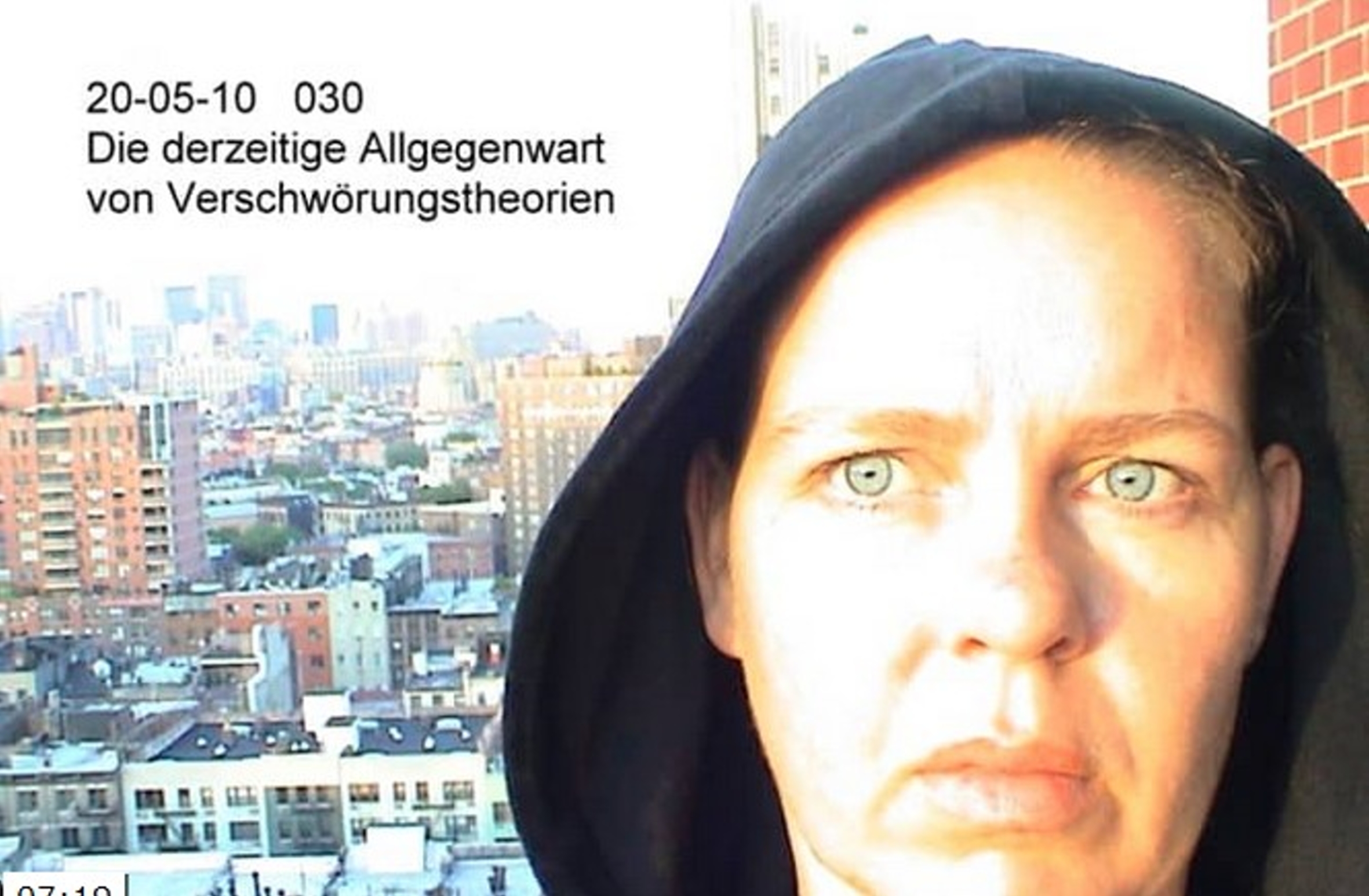 Die Bildfibel der neuen Begriffe DE 2020, Colour, Music: oval (Markus Popp) 7 min. https://vimeo.com/471912681
Die Bildfibel der neuen Begriffe DE 2020, Colour, Music: oval (Markus Popp) 7 min. https://vimeo.com/471912681
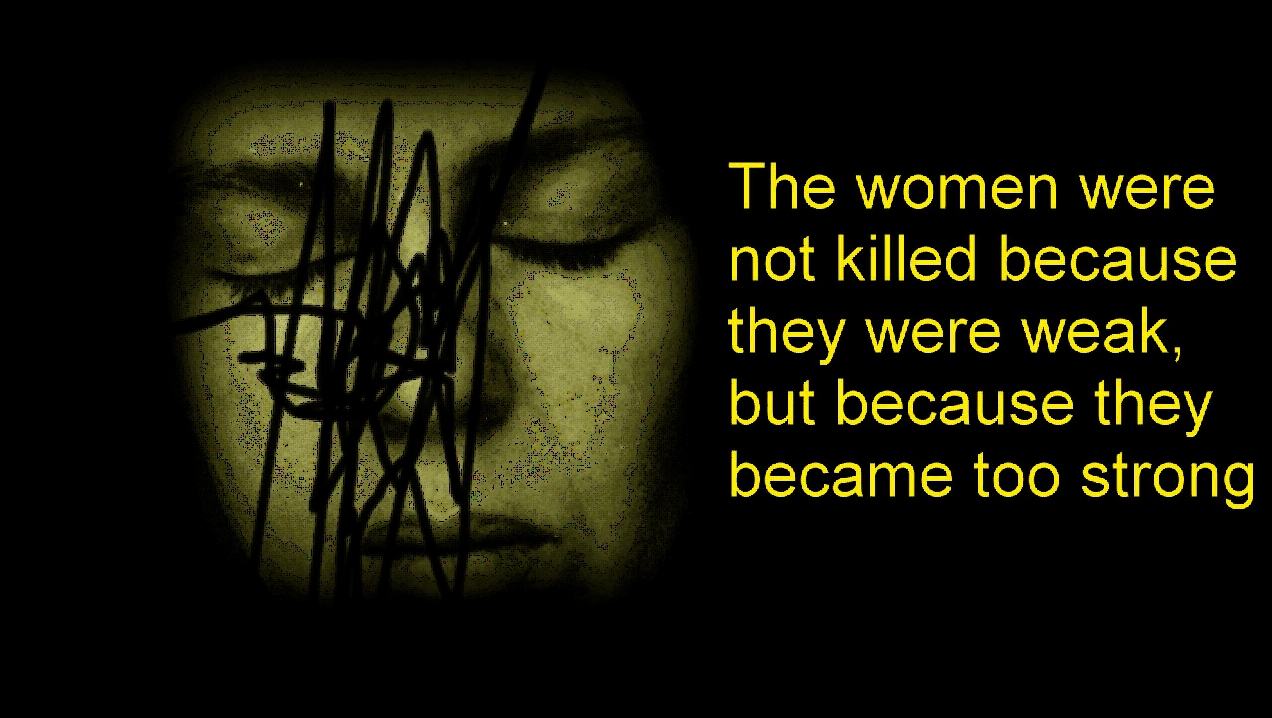
FEMICIDE (english version) DE/USA 2020, Colour, Music: Timothy Shearer, 6 min. https://vimeo.com/493718700
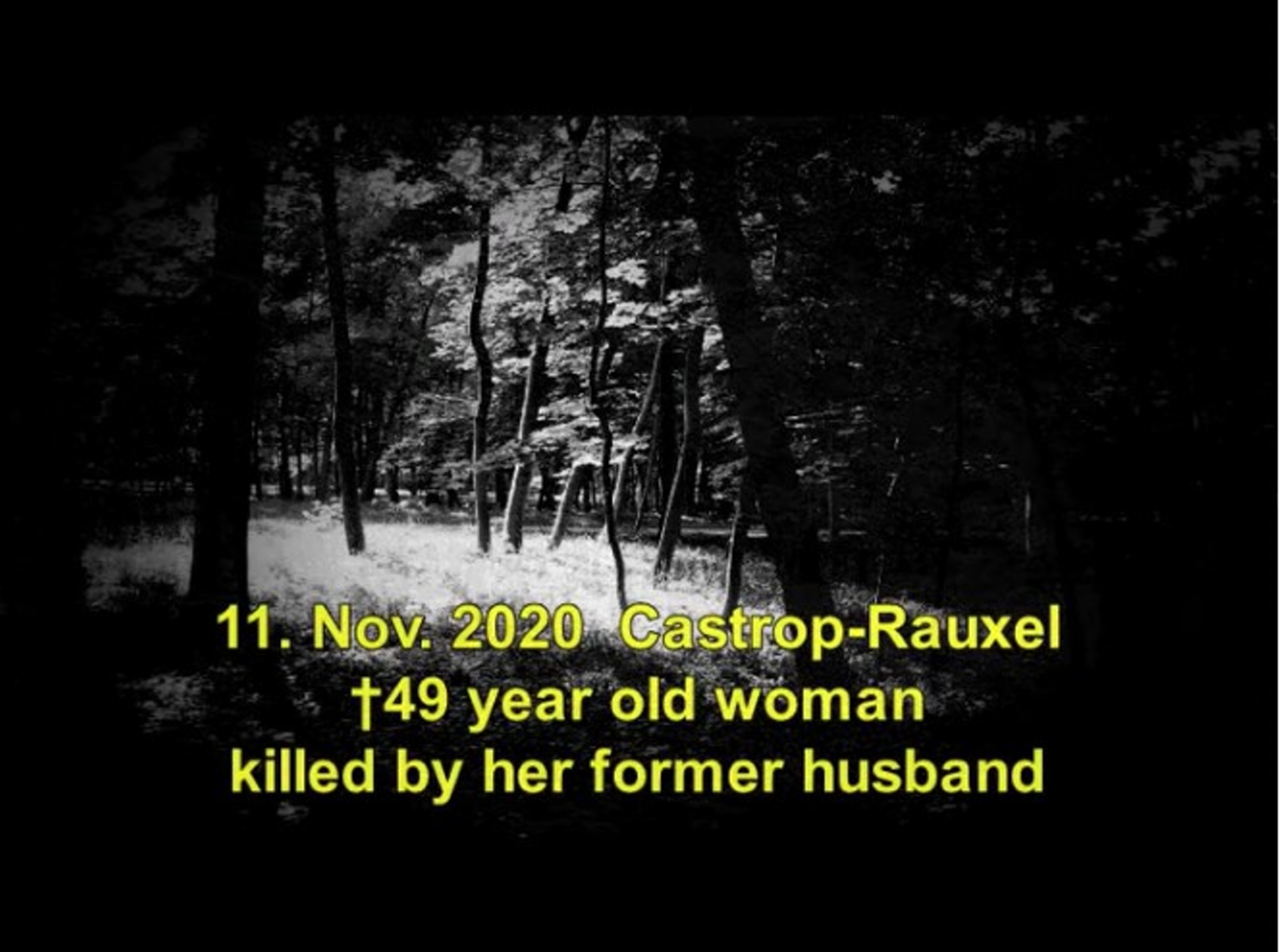 Comments on FEMICIDE DE 2021, Colour, whistling: Sabine Reinfeld, 5 1/2 Min. https://vimeo.com/597767267
Comments on FEMICIDE DE 2021, Colour, whistling: Sabine Reinfeld, 5 1/2 Min. https://vimeo.com/597767267
"Zurückgewinnen Vertrauen - Regain
confidence" (WT).
I am always dealing with the subject of violence against women and have repeatedly made video works about it (the selection of the most important are solo mit chor AT/DE 2004, portrait einer jungen frau AT/DE/NZ 2005, i deeply regret DE/A T 2008, lukrezia DE/A T 2009, A Woman of Today DE 2017, FEMIZID DE/USA 2020, comments on FEMIZID DE 2021).
For me, the lookout and watchtower at the edge of a park is a symbol of a possible shelter. This image imposes itself on me. Of course I don't walk alone through green spaces at night. I don't have this confidence in myself (could I defend myself?) and other people I might meet there (would they attack me?). Or rather, I expect to be physically attacked. First of all, I don't trust anyone I might meet there at night.
My plan:
To approach this situation photographically, to produce a video work from my stay and the resulting experiences and emotions.
To use the space in and around the Wachtum as a place of exchange with others, whom I would like to invite in the context of this residency: e.g. Berliner Initiative gegen Gewalt an Frauen - BIG e.V., Bora e.V., Der Deutsche Juristinnenbund e.V. (German Women Lawyers Association). (djb), schokosport / selbstverteidigung and colleagues and friends who deal with this topic and/or want to deal with it ). Those invited should be as diverse as possible, the discourse should be as open and courageous as possible:
How can one regain lost trust in oneself and others?
I am always dealing with the subject of violence against women and have repeatedly made video works about it (the selection of the most important are solo mit chor AT/DE 2004, portrait einer jungen frau AT/DE/NZ 2005, i deeply regret DE/A T 2008, lukrezia DE/A T 2009, A Woman of Today DE 2017, FEMIZID DE/USA 2020, comments on FEMIZID DE 2021).
For me, the lookout and watchtower at the edge of a park is a symbol of a possible shelter. This image imposes itself on me. Of course I don't walk alone through green spaces at night. I don't have this confidence in myself (could I defend myself?) and other people I might meet there (would they attack me?). Or rather, I expect to be physically attacked. First of all, I don't trust anyone I might meet there at night.
My plan:
To approach this situation photographically, to produce a video work from my stay and the resulting experiences and emotions.
To use the space in and around the Wachtum as a place of exchange with others, whom I would like to invite in the context of this residency: e.g. Berliner Initiative gegen Gewalt an Frauen - BIG e.V., Bora e.V., Der Deutsche Juristinnenbund e.V. (German Women Lawyers Association). (djb), schokosport / selbstverteidigung and colleagues and friends who deal with this topic and/or want to deal with it ). Those invited should be as diverse as possible, the discourse should be as open and courageous as possible:
How can one regain lost trust in oneself and others?
Karø Goldt *1967 in Günzburg, lives and works in Berlin. She studied Religious Studies (Religionswissenschaften) at the FU Berlin with Prof. Dr. Klaus Heinrich and at the Schule für künstlerische Photographie, Vienna with Friedl Kubelka / vom Gröller.
Karø Goldt has been working with the medium of artistic photography since 1993 and with the medium of experimental cinema since 2001. Goldt's video works are animated from digital and analog photographs. In the videos she works in close exchange with different musicians.
Goldt's graphically remarkable videos are based on experimental and digitally manipulated photographic prints, which through animation become disturbingly beautiful visual compositions: formally minimalist, sensually intense. By meticulously observing and alienating real objects on the one hand, or creating virtual visual worlds reminiscent of realities on the other, Goldt's films achieve a state of in-between. Goldt's artistic methodology approaches the question of the pictorial and time with the means of photography and film. Goldt takes on current issues and questions sociopolitical and ethical dynamics of society, among other things, in her work.
www.karoegoldt.de
Karø Goldt has been working with the medium of artistic photography since 1993 and with the medium of experimental cinema since 2001. Goldt's video works are animated from digital and analog photographs. In the videos she works in close exchange with different musicians.
Goldt's graphically remarkable videos are based on experimental and digitally manipulated photographic prints, which through animation become disturbingly beautiful visual compositions: formally minimalist, sensually intense. By meticulously observing and alienating real objects on the one hand, or creating virtual visual worlds reminiscent of realities on the other, Goldt's films achieve a state of in-between. Goldt's artistic methodology approaches the question of the pictorial and time with the means of photography and film. Goldt takes on current issues and questions sociopolitical and ethical dynamics of society, among other things, in her work.
www.karoegoldt.de
JOSHUA SCHWEBEL
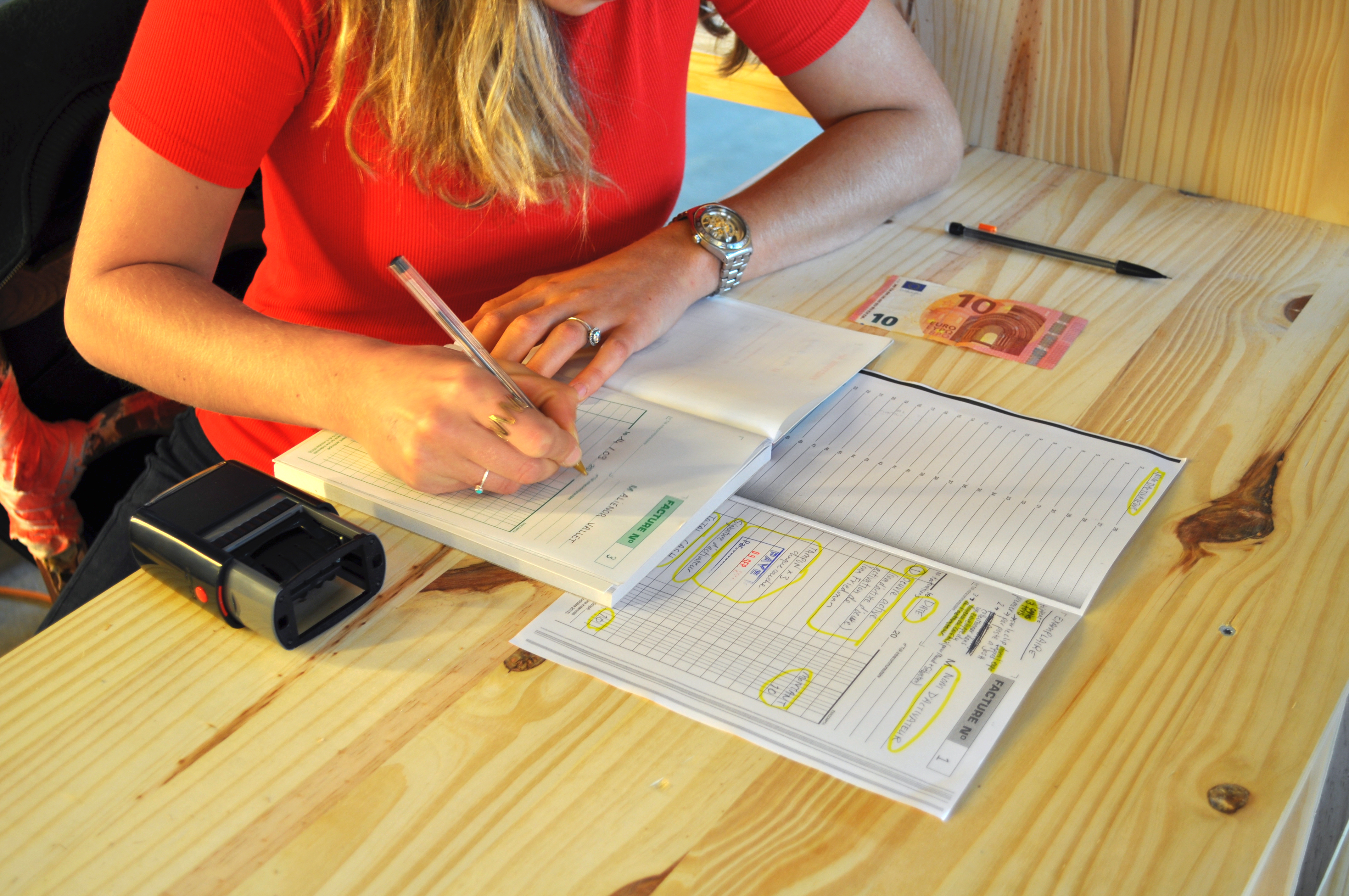
Audience Engagement, 2017
28 paid participants, intervention into group exhibition, photo credit: the artistThis work was part of a group exhibition reflecting on the heritage of Fluxus, in which several other artists' work involved audience participation. For his project Schwebel recruited a cohort of "activators" who he paid a fee to enact the other artists' work. This transaction recasts the concept of participatory art as unpaid labour.
During the residency at The Watch, Schwebel will conduct archival research and in-person interactions, delegated performances and interventions. These gestures will be oriented around questions connecting trust with heimlichkeit, and distrust with fremdheit. The connections between heimat and heimlich lend a particular political valence to questions of trust, through which distrust is directed at the foreign or the other.
Joshua Schwebel (he / him) is a trans artist based between
Montreal (Tiohti:áke) and Berlin. Schwebel practices a particularly direct form
of situation-based institutional critique, undertaken through performances,
withdrawals, delegated transactions and imposters. Selected solo exhibitions
include Centre Clark (Montreal, 2021), Piloto Pardo (London, 2021), Or Gallery
(Vancouver, 2019), Kreuzberg Pavillon (Berlin, 2019), the Fonderie Darling
(Montreal, 2018), and Centrum (Berlin, 2017). Schwebel was a participating fellow
in the BPA // Berlin Program for Artists, and has held residencies at AiR 351
(Lisbon), Laznia CCA (Gdansk), Le Couvent des Récollets (Paris), the
Künstlerhaus Bethanien (Berlin), Rupert (Vilnius), The Tadeusz Kantor
Foundation (Krakow), Standards (Milan), and WhereWhere (Beijing) among others.